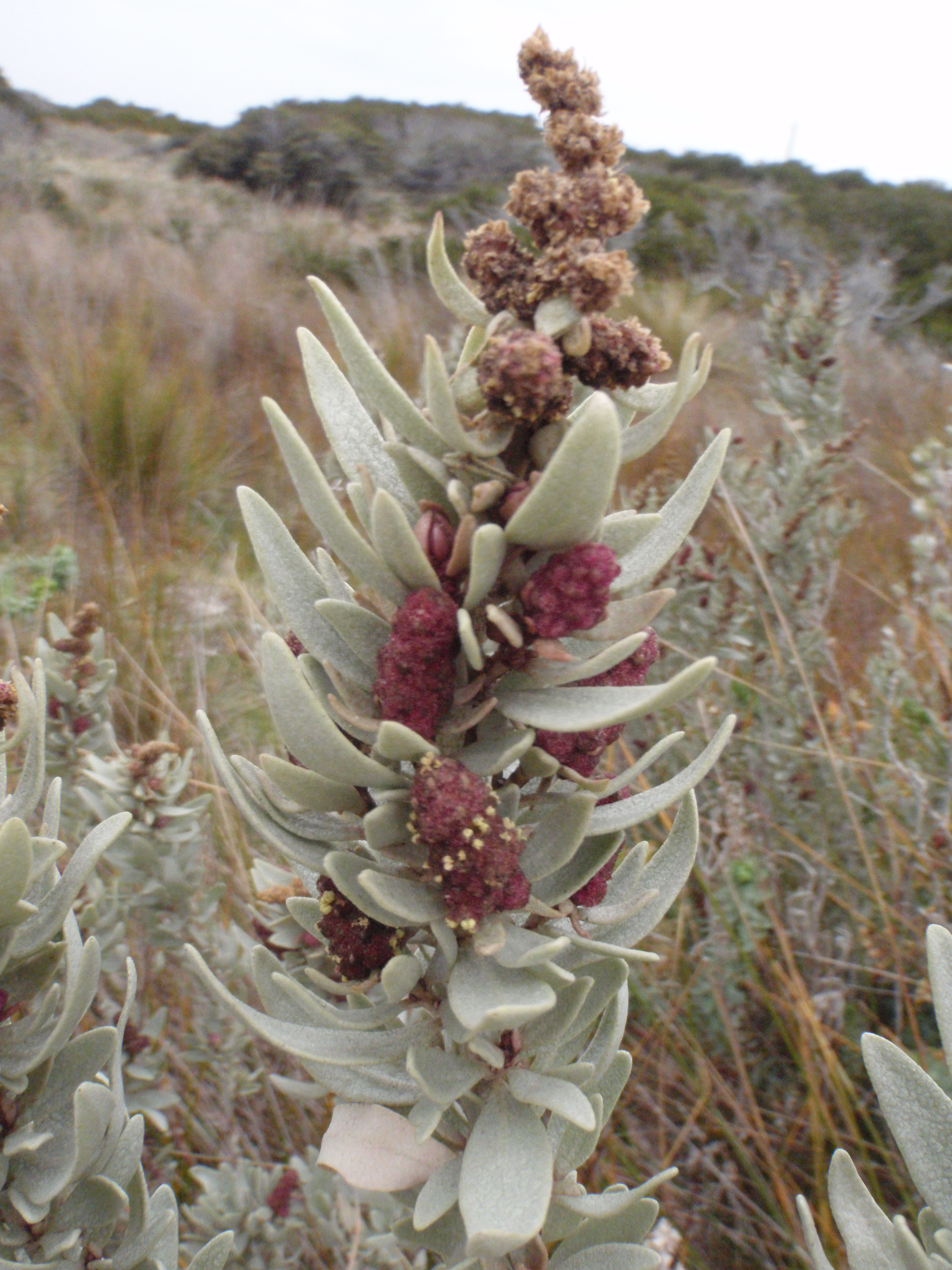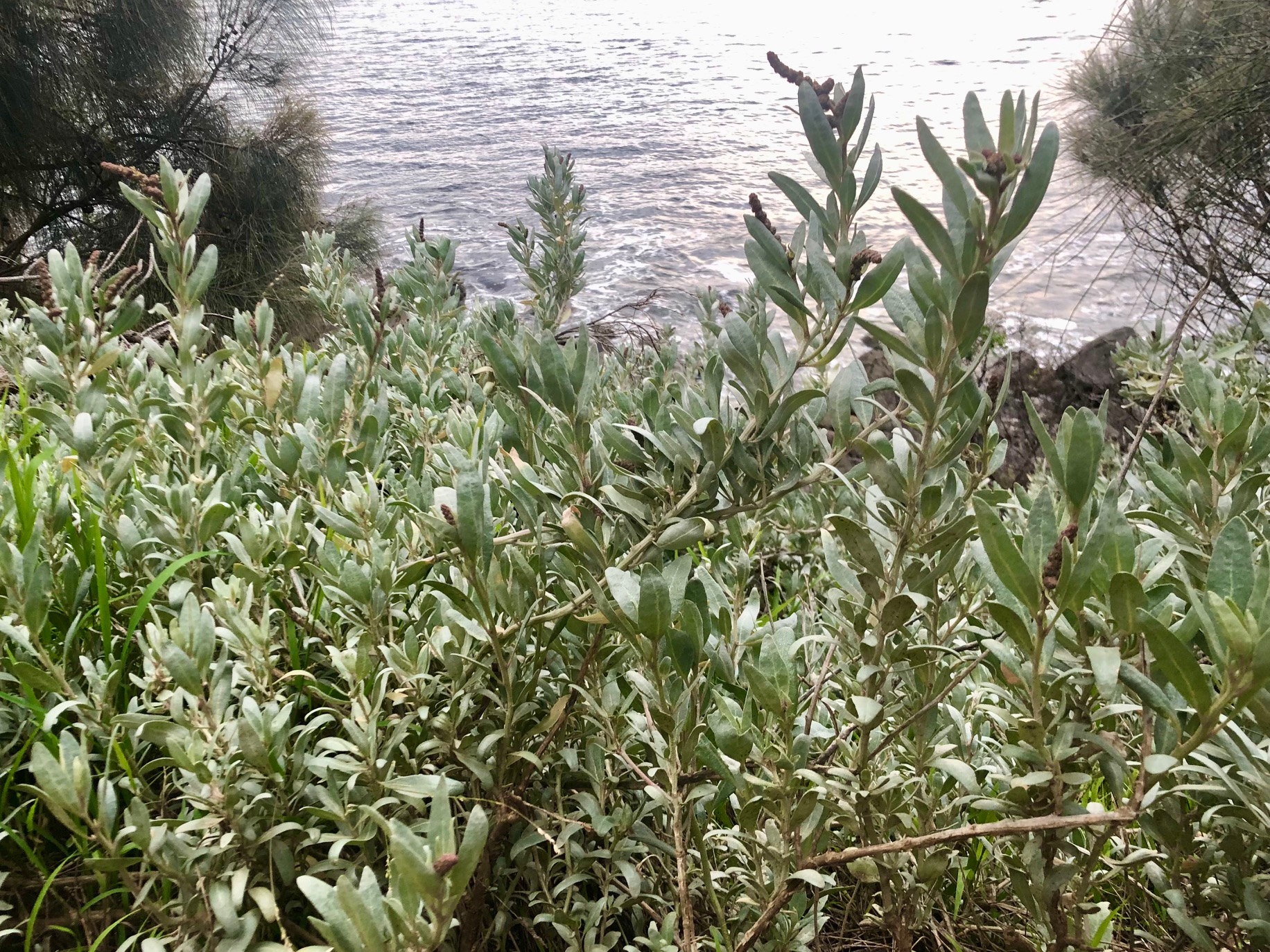Scientific Name: Atriplex cinerea
Common Name: grey saltbush
Family Classification (Clade): Eudicots
Family: Amaranthaceae
Form Description: Dense shrub to 6m wide, with white, stout, grooved branches and 5-6cm long, silvery-grey, leathery leaves.
Height (m): 1 – 1.5
Flowers: Shrubs are either male or female; males can be identified by dense brown spikes of flowers up to 5cm long. Female flowers are cryptic, and are single or occur in small clusters in the leaf axils.
Fruit: Grey, and egg or diamond-shaped.
Municipality
Plant Communities
Habitat Notes
Frequent in saltmarshes and on coasts.
General Notes
Edible foliage, mistaken as a ‘sort of sage’ by members of the First Fleet. Tolerant of salt spray.
Propagation Calendar
-
Flowering Month
Jan Feb Mar Apr May Jun Jul Aug Sep Oct Nov Dec -
Seed Collecting Month
Jan Feb Mar Apr May Jun Jul Aug Sep Oct Nov Dec -
Sowing Month
Jan Feb Mar Apr May Jun Jul Aug Sep Oct Nov Dec -
Cutting Month
Jan Feb Mar Apr May Jun Jul Aug Sep Oct Nov Dec
Propagation Method
Seed Information
Seed Collection
Seed released within 3-14 days of seed maturity. Seed is easy to collect and usually has good results, but viability is variable.
Seed Treatment Method
Leaching Some species require extended time in nature weathering prior to germination as chemical inhibitors are broken down in the seed coat. Replicate this process by flushing away the inhibitor with frequent washing e.g. place the seeds in a stocking in a toilet cistern and drape it over the top for easy handling.
Seed Treatment Notes
Brown seeds germinate easily, but black seeds only germinate after 3-6 years storage. 2-3 seeds can be sown directly into pots. If seed is sown while still in the fruit, the fruits are rubbed under running water for several minutes or soaked in water for eight hours, and the water changes 2 or 3 times. This removes the salt which inhibits germination.
Cutting & Division Information
Strikes easily from cuttings, requires good drainage.

